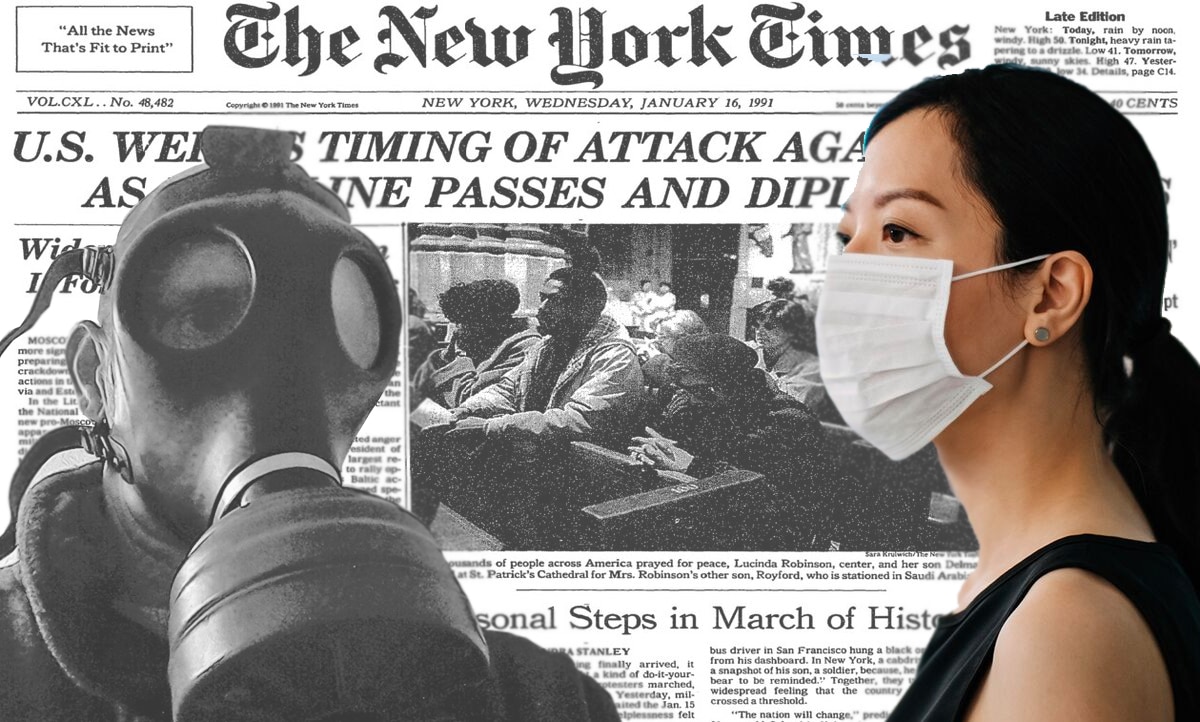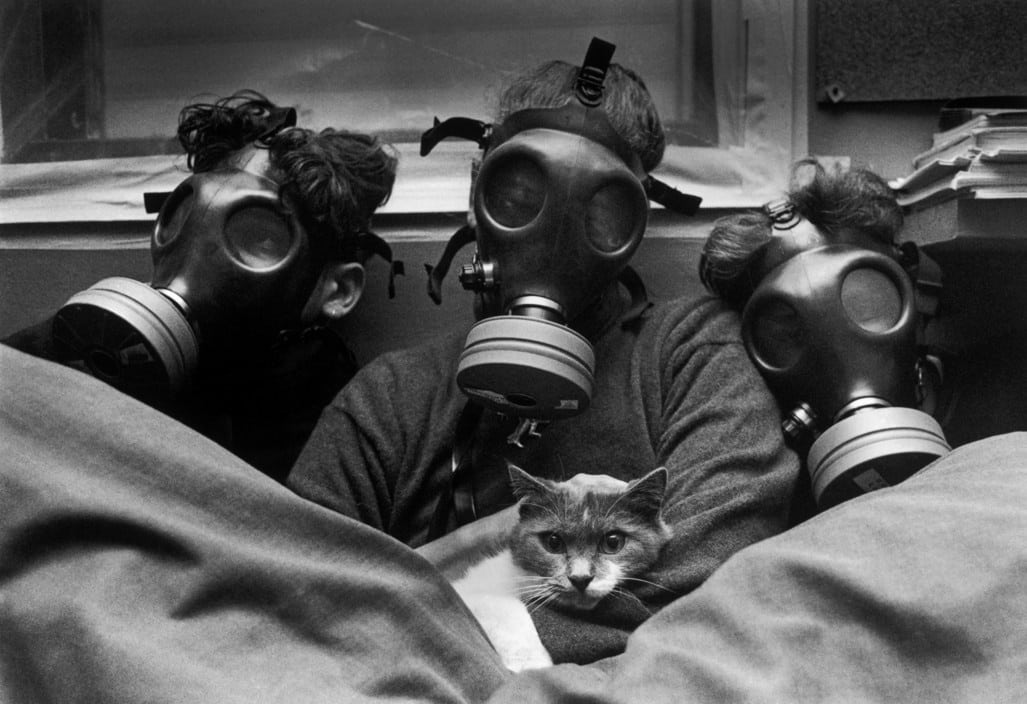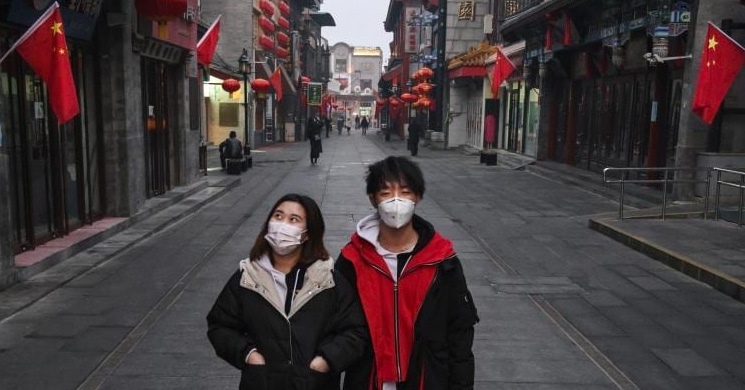Blog
Home » Blog – The Diamond Blog » LIKE THE GULF WAR IN 1991, CORONAVIRUS CRISIS IN 2020 LIKELY TO PROVIDE A WATERSHED MOMENT
Focus on

In August 1990 Iraq had invaded Kuwait, prompting a United Nation Security Council resolution demanding that the country withdraw its troops unconditionally by the following February 15. Over the following months, a U.S.-led coalition of armed forces from 35 countries gathered in the region, with the objective of enforcing the UN decision.
While Israel was not part of the coalition, it was clearly a potential target for Iraqi aggression in the face of coalition action. The Iraqis believed that if they could instigate an Israeli attack on their territory, in response to Iraqi missile attacks on Israel, they may undermine the coalition against them, which included a number of Arab armies.
Consequently, as the February 15 deadline approached, and the prospect of Iraqi missile attacks grew, foreign airlines began suspending services to Israel. The country’s diamond sector, which relied on a steady traffic of foreign buyers, and particularly those from the United States for which it was the primary supplier of polished goods, needed to find alternative solutions in keep to the wheels of the trade turning.
Three primary paths of action were adopted. Those companies with foreign offices and affiliates moved as much stock as they could abroad, so that trade could continue unabated. Other companies sent sales representatives on road, taking diamonds to the clients that otherwise would have traveled to Israel to buy them. Still other companies selected to send goods to clients on consignment, allowing them to buy what they could sell, while returning the goods they did not want.
A NEW NORMAL CREATED AT END OF GULF WAR
When the Gulf War ended in March 1991 and life in Israel returned to normal, there was a general belief that the special measures that had been taken during the crisis could be suspended, and things would return to where they had been in August 1990.
But what became apparent quite quickly on that this was not to be. The Israeli industry’s clients, who had been become used to improved service and more generous terms of credit a result of the crisis, questioned why these could not be continued in time of peace as well.
Reluctantly, the Israeli suppliers agreed. What this meant that there was a sharp increase in the percentage of sales being transacted on consignment, or “memo” as it is known in the trade, and traveling sales representatives became a standard feature of the trade.

Israeli family in lockdown during the First Gulf War in 1991.
Furthermore, what began as an Israeli phenomenon came to be emulated by the other trading centers, and most markedly Belgium and India, who discovered that. They would have to provided similar services to their clients in order to compete with their Israeli colleagues.
There was a another, possibly more significant consequence of this “service-oriented” trend and that was an increased readiness of dealers in the trading centers to provide increasingly more attractive credit terms to the clients, including but not limited to a growing reliance on memo sales. Payment terms of 120 and 180 days, which once had been unheard of, became standard.
Within the space of not much more than a year, starting with the Iraqi invasion in August 1990, the diamond business had been inexorably altered.

Chinese in lockdown during the coronavirus crisis in 2020.
THE SHIFT ONLINE IS LIKELY IRREVERSABLE
The change in buying habits as a result of the coronavirus are only now becoming apparent. In China, housebound consumers are turning to online groceries for their daily supply.
Carrefour, the French supermarket chain, which is heavily invested in the Chinese market, reported that vegetable deliveries increased by 600 percent year over year during the Lunar New Year.
Similarly, Chinese online retailer JD.com reported that sales of grocery increased by 215 percent year to 15,000 tons during a 10-day period between late January and early February, when compared the same period in 2019.
According to QuestMobile, a business intelligence services provider in China’s mobile internet market, daily time spent on the mobile internet rose from 6.1 hours on average in early January to 6.8 hours during Lunar New Year. It climbed to 7.3 hours after the holidays, when workers were placed in self-quarantine.
It is early to judge the impact of the coronavirus on online diamond and jewelry sales, in part because food and more basic items take precedence over luxury during the early days of a crisis. But what is almost certain is that the growing reliance on online services is not going to be restricted to food and entertainment, nor is it likely to return to the levels that existed before the coronavirus crisis.
Like the Gulf War in 1991, the coronavirus is likely to be remembered as a watershed moment for the diamond business, as it will for the world economy in general.
